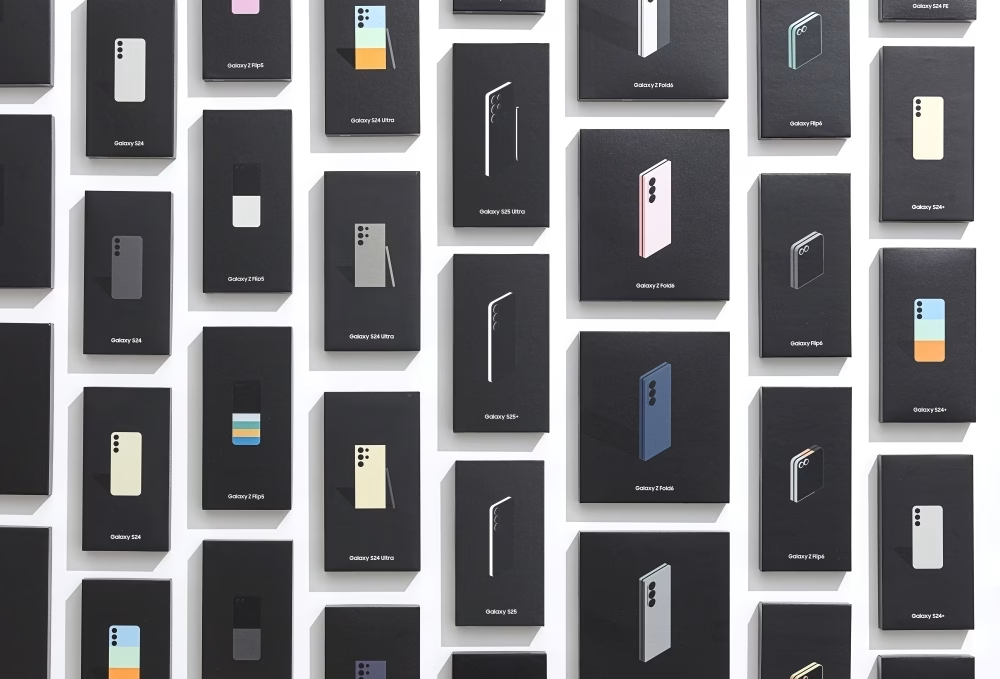Samsung Dominates International Design Excellence Awards 2025 with 47 Honors, Including Two Gold
Samsung Electronics has once again cemented its position as a leader in design innovation, clinching an impressive 47 accolades at the prestigious International Design Excellence Awards (IDEA) 2025. Among these, the company secured two coveted Gold awards, underscoring its commitment to pushing the boundaries of user-centric and AI-integrated design. The announcement, made earlier today, highlights Samsung's consistent ability to blend cutting-edge technology with intuitive and impactful design solutions.
This significant achievement at IDEA 2025, an event renowned for recognizing design excellence across various industries, follows a string of recent design triumphs for Samsung. Earlier this year, the company garnered 58 awards, including two Gold distinctions, at the iF Design Awards. The IDEA wins further validate Samsung's strategic focus on design as a core pillar of its product development, particularly as artificial intelligence becomes increasingly integral to consumer electronics.
AI-Driven Design Takes Center Stage
Notably, the two Gold awards were bestowed upon designs that prominently feature AI to personalize and enhance user experiences. This focus on intelligent design reflects a broader industry trend, and Samsung appears to be at the forefront, demonstrating how AI can move beyond mere functionality to create truly resonant and adaptive products.
The specific products that earned these top honors weren't detailed in the initial announcement, but the emphasis on AI-driven customization suggests innovations across Samsung's diverse portfolio, likely including their latest smartphones, smart home appliances, and advanced display technologies. It's fascinating to see how AI is being woven into the very fabric of product design, moving beyond software features to influence the physical form and interactive elements of devices.
A Comprehensive Sweep Across Categories
Beyond the two Gold awards, Samsung's impressive haul at IDEA 2025 includes:
This broad recognition across multiple award tiers demonstrates the depth and breadth of Samsung's design prowess. The awards span various categories, including Product Design, User Experience (UX), and User Interface (UI), indicating a holistic approach to design that considers every touchpoint a user has with a product.
The recognition for designs like advanced projectors and AI-integrated devices that adapt to different lifestyles speaks volumes about Samsung's forward-thinking approach. Take, for instance, the concept packaging for advanced projectors, such as the 'BOJAGI' concept. While perhaps not a product in itself, such innovative packaging design can significantly influence the unboxing experience and brand perception, which is a crucial aspect of overall product design. It’s these thoughtful details that often set leading brands apart.
Design Excellence: More Than Just Aesthetics
The International Design Excellence Awards, administered by the Industrial Designers Society of America (IDSA), evaluate entries based on criteria such as differentiation, impact, and innovation. This means Samsung's wins aren't just about making products look good; they're about creating solutions that are genuinely innovative, offer significant user benefits, and contribute positively to society.
Considering the competitive landscape of global design awards, this consistent performance year after year is remarkable. It suggests a deeply ingrained design culture within Samsung, one that prioritizes research, user feedback, and iterative development. The fact that many of these award-winning designs are tied to products released in the 2024-2025 timeframe, like the Galaxy series and early 2025 smart home appliances, shows that Samsung isn't just designing for the future; they're delivering on it now.
What's particularly interesting is how these awards reflect the evolving relationship between technology and everyday life. As devices become more complex, the role of design in making them accessible and enjoyable becomes even more critical. Samsung's success at IDEA 2025 suggests they're not only keeping pace with these changes but actively shaping them, particularly through the intelligent integration of AI. It makes you wonder what groundbreaking designs we'll see emerge from their labs next.
